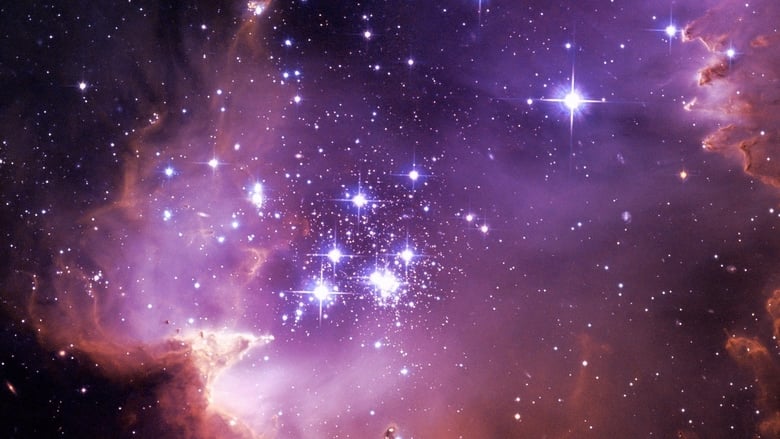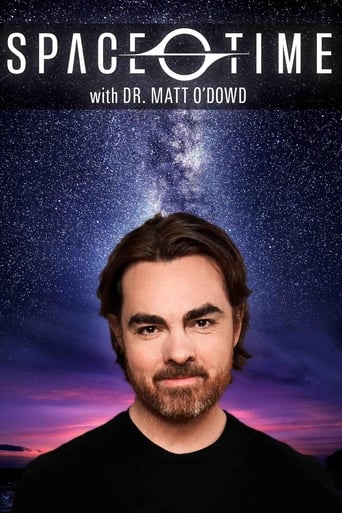
Trailer
Synopsis
Space Time explores the outer reaches of space, the craziness of astrophysics, the possibilities of sci-fi, and anything else you can think of beyond Planet Earth with our astrophysicist host: Matthew O’Dowd.
Episode 40 : Do Black Holes Create New Universes?
December. 17,2019
What if every single black hole that formed in our universe sparked the big bang of a new universe? Cosmological natural selection proposes exactly this - but even better, it claims to be able to test the hypothesis.
Episode 39 : The Doomsday Argument
December. 09,2019
Since the dawn of humanity around 100 billion people have lived. How many will live in the future of our species? We might hope for a trillion times that if we colonize the galaxy. But a simple statistical argument tells us that the doom of our species is much, much closer.
Episode 38 : Is The Universe Finite?
December. 02,2019
The universe is big, really, really big. Although according to a new paper, it may literally be infinitely smaller than we previously thought.
Episode 37 : Can You Observe a Typical Universe?
November. 18,2019
The moment you started observing reality, you hopelessly polluted any conclusions you might make about it. The anthropic principle guarantees that you are NOT seeing the universe in most typical state. But used correctly, this highly controversial idea can be extremely powerful. So, how do you correctly use the anthropic principle?
Episode 36 : Does Life Need a Multiverse to Exist?
November. 11,2019
Life exists in our universe. There we go - one hopefully uncontroversial statement. Therefore our universe is capable of producing and supporting life. How am I going? Two for two? Let’s try for three: therefore there are countless universes. Hmmm. Did I break my streak?
Episode 35 : Why We Might Be Alone in the Universe
November. 04,2019
Why does it appear, that humanity is the lone intelligence in the universe? The answer might be that planet Earth is more unique than we've previously assumed. The rare earth hypothesis posits exactly this - that a range of factors made Earth exceptionally unusual and uniquely able to produce intelligent life.
Episode 34 : Is Time Travel Impossible?
October. 21,2019
Time travel stories are cool because both the past and future are somehow more interesting that the present and because everyone wants a redo. But so far it appears we’re doomed to live consumed by regret in the eternal, boring present. Time marches on, inexorably and only forward. Or so we thought until Einstein came along. His special and general theories of relativity changed the way we think about time forever, and believe it or not, their raw equations permit time travel. They even tell us how to do it. So let’s review the possibilities, and decide how possible they really are.
Episode 33 : Loop Quantum Gravity Explained
October. 15,2019
It’s time we talked about loop quantum gravity. What exactly is it? What are the loops? And can it really defeat string theory in our quest for a Theory of Everything?
Episode 32 : Black Hole Harmonics
October. 07,2019
Black holes are crazy enough on their own – but crash two together and you end up with a roiling blob of inescapable space that vibrates like a beaten drum. And the rich harmonics of those vibrations, seen through gravitational waves, could hold the secrets to the nature of the fabric of spacetime itself. Today on space time journal club we’ll explore the papers that claim to have detected black hole harmonics. We’ll also give you the latest updates on the most recent – in some cases quite bizarre - LIGO detections.
Episode 31 : How Many Universes Are There?
September. 30,2019
The universe is big, but it’s peanuts compared to the eternally inflating multiverse. But just how many universes are there? What are they like? And most importantly, what can they tell us about … aliens?
Episode 30 : Is Pluto a Planet?
September. 23,2019
You know what a planet is, right? A big round thing that orbits a star. Uh, not so fast. The surprisingly vicious debate over the planetary status of Pluto has given us a fascinating glimpse into what a scientific definition really is. And perhaps the word planet is too vague to be used as a scientific definition at all.
Episode 29 : Could We Terraform Mars?
September. 16,2019
Humanity’s future is glorious. As we master space travel, we’ll hop from one lifeless world to the next. Life will blossom in our path and the galaxy with shimmer with beautiful Earth-like orbs. Hmmm… maybe. This won’t sound so far fetched if we prove we can do it at least once. If we successfully terraform Mars.
Episode 28 : Is Earth's Magnetic Field Reversing?
September. 03,2019
Earth’s magnetic field protects us from deadly space radiation. What if it were drastically weakened, as a precursor to flipping upside down? I mean, it has before … many, many times..
Episode 27 : How To Become an Astrophysicist + Challenge Question!
August. 26,2019
Do you want to major in Astrophysics? Are you thinking about becoming (or ever just wondered how one becomes) an Astrophysicists? Do you want to know Matt O’Dowd’s origin story? Then buckle up and enjoy the ride and try your astrophysics skill in calculating bubble universes to try to win some free Space Time Swag from the Merch Store.
Episode 26 : What Happened Before the Big Bang?
August. 19,2019
We actually have a pretty good idea of what might have happened before the Big Bang. That is, as long as we define the Big Bang as the extremely hot, dense, rapidly expanding universe that is described by Einstein’s equations. That picture of the universe is very solid down to about a trillionth of a second after the supposed beginning of time. We can make good guesses down to about 10^-30th of a second. But before that?
Episode 25 : Exploring Arecibo in VR 180
August. 12,2019
How can you build a telescope that can see the entire night sky without moving its dish? Well in this special episode of Space Time we took a tour of the Arecibo Observatory with a VR 180 camera so you could explore the incredible ingenuity of Arecibo's giant spherical dish that allows it to reflect light from every spot on the sky in a symmetric way. We also talked to Dr. Abel Méndez about Exoplantes and Aliens!
Episode 24 : What Caused the Big Bang?
August. 06,2019
Every astronomy textbook tells us that soon after the Big Bang, there was a period of exponentially accelerating expansion called cosmic inflation. In a tiny fraction of a second, inflationary expansion multiplied the size of the universe by a larger factor than in the following 13 and a half billion years of regular expansion. This story seems like a bit of a … stretch. Is there really any mechanism that could cause something like this to happen? What what we’re covering today – the real physics of cosmic inflation.
Episode 23 : Deciphering The Vast Scale of the Universe - STELLAR
July. 25,2019
One of the fundamental questions humanity has always asked is how big is our Universe? For much of human history, people believed that Planet Earth was the very center of the entire universe. And Earth is pretty big. But compared the rest of the universe, we are infinitesimally small.
Episode 22 : Did Time Start at the Big Bang?
July. 18,2019
Episode 21 : The Quantum Internet
July. 15,2019
When we finally have a quantum internet you’ll be able to simultaneously like and dislike this video. But we don’t. So I hope you like it. The world is widely regarded as being well and truly into the digital age, also called the information age. No longer are economies and industries solely characterised by the physical goods they produce, and in fact some of the largest companies in the world produce no physical goods at all: digital information is a commodity in its own right. As discussed in a previous episode, this worldwide digital economy is fundamentally reliant on certain cryptographic processes. Currently these processes work in the realm of classical cryptography, but one day soon this may not be enough and so quantum cryptographic methods and algorithms are being developed. However, it’s one thing to design a protocol, it’s something else entirely to build a system to support it. To understand what needs to be done we need to get to the foundations of quantum mech...
Episode 20 : Thorium and the Future of Nuclear Energy
July. 01,2019
Energy too cheap to meter - that was the promise of nuclear power in the 1950s, at least according to Lewis Strauss chairman of the Atomic Energy Commission. That promise has not come to pass - but with some incredible new technologies, perhaps it still could. The question is - should it?
Episode 19 : The Quasar from The Beginning of Time - STELLAR
June. 20,2019
Recently, the oldest quasar ever seen was discovered by the Gemini North telescope in Hawaii, the Magellan Telescopes at Las Campanas Observatory in Chile, as well as the Large Binocular Telescope in Arizona. In this first episode of the PBS DS mini-series, STELLAR, Matt travels to the top of Mauna Kea to visit the Gemini North telescope and see just how they found this ancient Quasar and it’s massive black hole.
Episode 18 : How Black Holes Kill Galaxies
June. 17,2019
Black holes are really only dangerous if you get too close. Ha, who am I kidding. It turns out they may be responsible for ending star formation across the entire universe.
Episode 17 : The Alchemy of Neutron Star Collisions
June. 06,2019
Carl Sagan’s famous words: “We are star stuff” refers to a mind-blowing idea – that most atomic nuclei in our bodies were created in the nuclear furnace and the explosive deaths of stars that lived in the ancient universe. In recent years it’s become clear that the truth is even more mind-blowing. Many heavy elements - includes most precious metals - were produced in an even more spectacular event: the collision of neutron stars. In fact, according to a recent study most of the Earth’s supply of these elements was created in a single neutron star merger that took place near our Sun’s birth nebula 80 million years ago before Earth formed.
Episode 16 : The Cosmic Dark Ages
May. 16,2019
We live in the stelliferous era. Somewhere between 10 and 1000 billion trillion stars fill the observable universe with light. But there was a time before the first star ignited. A time we call the cosmic dark ages.
Episode 15 : Why Quantum Computing Requires Quantum Cryptography
May. 09,2019
Quantum computing is cool, but you know what would be extra awesome - a quantum internet. In fact if we want the first we’ll need the latter. And the first step to the quantum internet is quantum cryptography.
Episode 14 : The Real Science of the EHT Black Hole
May. 01,2019
How do you take a picture of a black hole and what can we learn from it? Our first ever actual bona fide photo of a black hole, made by the Event Horizon Telescope and revealed to the world in a press conference on April 10th. Since then it’s got plenty of coverage, because … I mean look at it. It’s a freaking black hole. It’s black, it’s holey, it’s everything we hoped it would be. Now that the giddiness has subsided and I personally have stopped spending hours on end staring at a black spot, we can take a breath and actually look at the real science here and discuss exactly how a picture like this could be taken and what we can learn from it.
Episode 13 : No Dark Matter = Proof of Dark Matter?
April. 24,2019
We’ve been failing to detect dark matter for decades. Finally, the latest failure to detect dark matter may have actually proved its existence. One of these is true: either most of the matter in the universe is invisible and formed of something not explained by modern particle physics OR our understanding of gravity is completely broken. The debate over which is true has raged for decades, but may finally have been resolved in an unlikely way: the proof that dark matter exists, and really is an exotic, unknown substance, may have come from the discovery of two galaxies that appear to have no dark matter at all. Today on Space Time Journal Club we’ll look at the papers that reveal this discovery.
Episode 12 : The Holographic Universe Explained
April. 10,2019
We live in a universe with 3 dimensions of space and one of time. Up, down, left, right, forward, back, past, future. 3+1 dimensions. Or so our primitive Pleistocene-evolved brains find it useful to believe. And we cling to this intuition, even as physics shows us that this view of reality may be only a very narrow perception. One of the most startling possibilities is that our 3+1 dimensional universe may better described as resulting from a spacetime one dimension lower – like a hologram projected from a surface infinitely far away.
Episode 11 : The Edge of an Infinite Universe
April. 03,2019
Have you ever asked “what is beyond the edge of the universe?” And have you ever been told that an infinite universe that has no edge? You were told wrong. In a sense. We can define a boundary to an infinite universe, at least mathematically. And it turns out that boundary may be as real or even more real than the universe it contains.
Episode 10 : Could the Universe End by Tearing Apart Every Atom?
March. 28,2019
Of all the unlikely ends of the universe, the Big Rip has to be the most spectacular. Galaxies ripped to shreds, dogs and cat first living together, then tragically separated by the infinitely accelerating expansion of space on subatomic scales. Good thing it's not going to happen. Or is it?
Episode 9 : Is Dark Energy Getting Stronger?
March. 20,2019
The power of Dark Energy may be increasing as the universe ages. Subtle clues are emerging that the accepted model for the nature of dark energy and dark matter may not be all that. We saw the first such clue recently in our recent episode on the Crisis in Cosmology. Today we’re doing a Space Time Journal Club to reveal another clue. We’re looking at a new paper in Nature Astronomy, “Cosmological constraints from the Hubble diagram of quasars at high redshifts” by Risaliti and Lusso. It hints that the cosmological constant may not be so constant after all. In fact it may be increasing. If this is true, then our prediction for the future of our universe looks VERY different, and may involve the entire universe tearing itself to shreds at the subatomic level in the Big Rip.
Episode 8 : Will You Travel to Space?
March. 13,2019
The Future of Space Tourism with Richard Branson
The private space-race has been on for a while now. The attention has been on Space-X and Blue Origin with their reusable rockets. But there’s one private space program that’s been doing things a little differently. Richard Branson’s Virgin Galactic isn’t building rockets at all – it’s building spaceships. And I got to sit down and talk to him about it.
Episode 7 : The Impossibility of Perpetual Motion Machines
March. 06,2019
Bad ideas come and go in physics. But there’s one bit of nonsense that is perhaps more persistent than all others: the perpetual motion machine. No working perpetual motion machine has ever been experiment verified. All break the laws of thermodynamics. In fact, we classify based on WHICH law of thermodynamics they break. We have perpetual motion machines of the first kind - they violate energy conservation - they pump more energy out than they need to keep running. This includes most of the historical devices. Then there are machines of the second kind - they’re a bit more subtle in their wrongness because break the second law of thermodynamics - extracting energy by reversing entropy. Many modern “free-energy” devices fall into this category. Now the best modern designs are by you - answers to our recent challenge question, which we’ll get to at the end. But first let’s take a look at examples of what other people came up with - this’ll be a fun little journey through some ...
Episode 6 : Secrets of the Cosmic Microwave Background
February. 20,2019
Hook up an old antenna to your TV and scan between channels. The static buzz you hear is mostly due to the ambient radio produced by our noisy pre-galactic civilization. But around one percent of that buzz is something very different – it’s the cosmic microwave background radiation – the remnant of the heat-glow released when the hot, dense early universe became transparent for the first time. It sound likes random static, but that buzz contains an incredible wealth of hidden information. It holds the secrets of the universe’s fiery beginning.
Episode 5 : Sound Waves from the Beginning of Time
February. 07,2019
Invisible to the naked eye, our night sky is scattered with the 100s of billions of galaxies the fill the known universe. Like the stars, these galaxies form constellations – hidden patterns that echo the reverberations of matter and light in an epoch long before galaxies ever formed. These are the baryon acoustic oscillations, and they may hold the key to understanding the nature of dark energy.
Episode 4 : Perpetual Motion From Negative Mass?
January. 30,2019
Exotic matter – matter with negative mass - has long been the pipedream of science fiction writers, futurists, and certain rather. . . optimistic researchers. It’s the key to faster than light travel because it’s the only stuff that can curve space in the right way to hold open wormholes and construct warp fields. And if you can travel faster than light you can also travel backwards in time. We’ve been over those already. And we also recently covered a very new use for negative mass: as “dark fluid”, a proposed explanation for both dark matter and dark energy. That episode really got me thinking about the subtleties of negative mass and how it should really behave gravitationally. Turns out it’s complicated, and to answer it we really have to question the very definition of mass.
Episode 3 : The Crisis in Cosmology
January. 24,2019
The search for a single number: the hubble constant, which is the rate of expansion of our universe, has consumed astronomers for generations. Finally, two powerful and independent methods have refined its measurement to unprecedented precision. The only problem is that they don’t agree. This calls into question some of our most basic assumptions about the universe.
Episode 2 : Our Antimatter, Mirrored, Time-Reversed Universe
January. 16,2019
The foundations of quantum theory rests on its symmetries. For example, it should be impossible to distinguish our universe from one that is that is the perfect mirror opposite in charge, handedness, and the direction of time. But one by one these symmetries were found to be broken, threatening to break all of physics along with them.
Episode 1 : Are Dark Matter And Dark Energy The Same?
January. 09,2019
Astronomers are the worst at naming things. Dark energy AND dark matter? Who can remember which is which. But perhaps one astronomer has just fixed it, with a theory that says perhaps actually they are they same stuff.
Seasons
Similar titles
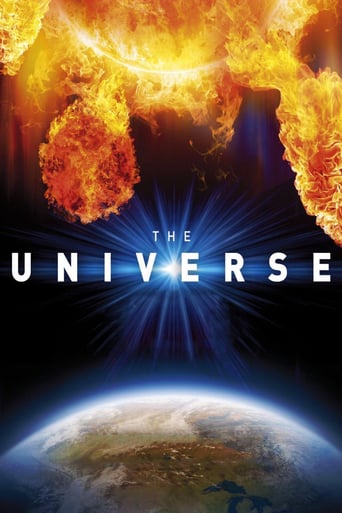
Prime Video
The Universe
From the planets to the stars and out to the edge of the unknown, history and science collide in a wondrous yet deadly adventure through space and time.

HULU
Critter Fixers: Country Vets
100 miles south of Atlanta, Dr. Hodges and Dr. Ferguson are two longtime friends who own and operate Critter Fixer Veterinary Hospital. Together with their loving staff, Drs. Hodges and Ferguson treat and care for over 20,000 patients. Between emergency visits to the office, and farm calls throughout rural Georgia - the Critter Fixers are constantly bombarded with unique cases you only see in the country.

Quanta Magazine
Explore mind-bending developments in basic science and math research. Quanta Magazine is an award-winning, editorially independent magazine published by the Simons Foundation.
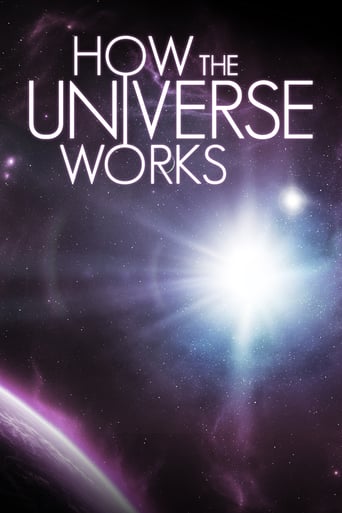
Prime Video
How the Universe Works
A users' guide to the cosmos, from the Big Bang to galaxies, stars, planets and moons: where did it all come from and how does it all fit together? A primer for anyone who has ever looked up at the night sky and wondered.
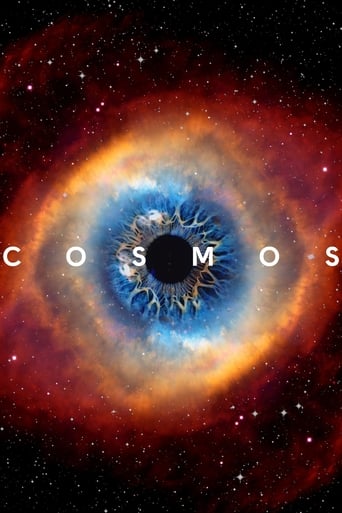
Cosmos
Famed astrophysicist Neil deGrasse Tyson provides clarity for the vision of the cosmos as he voyages across the universe with never-before-told stories that delve into the scientific concepts of the laws of gravity and the origins of space and time.

The Bell System Science
The Bell System Science Series consists of nine television specials made for the AT&T Corporation that were originally broadcast in color between 1956 and 1964. Marcel LaFollette has described them as "specials that combined clever story lines, sophisticated animation, veteran character actors, films of natural phenomena, interviews with scientists, and precise explanation of scientific and technical concepts — all in the pursuit of better public understanding of science.
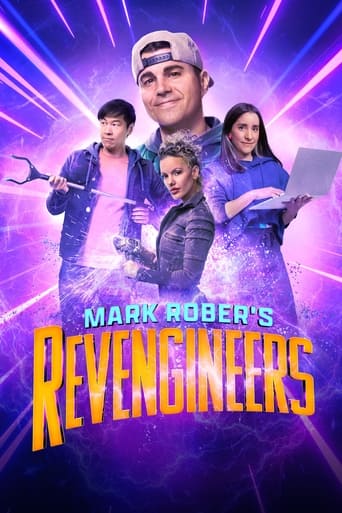
Max
Mark Rober's Revengineers
Mark Rober, former NASA engineer and current Apple engineer, created a viral glitter prank to serve justice to doorstep delivery thieves. Now you can join him and his team to take down the morally impaired. He'll build a trap, set the bait and wait.
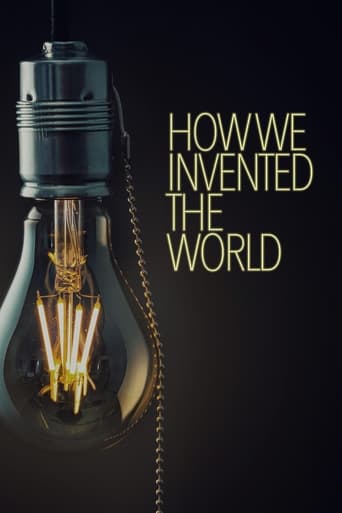
How We Invented The World
How We Invented the World is the ultimate action-packed, hi-energy, landmark series that examines the four inventions that define the modern world - mobiles, cars, planes and skyscrapers -celebrating the people and connections that made them possible. Each playing a crucial role in where we are now in the 21st Century - able to travel the globe, to talk to one another at any time at the push of a button, to live in huge cities, to commute, to capture the world we live in, making the fantasies we create come to life. This four part series lifts the lid on how these iconic inventions came to be. Showcasing the people who have shaped our lives in ways that they could have never imagined or anticipated, this series reveals stories of human ingenuity, extraordinary connections, unprecedented experimentation and jaw dropping accidents that created the world as we know it.
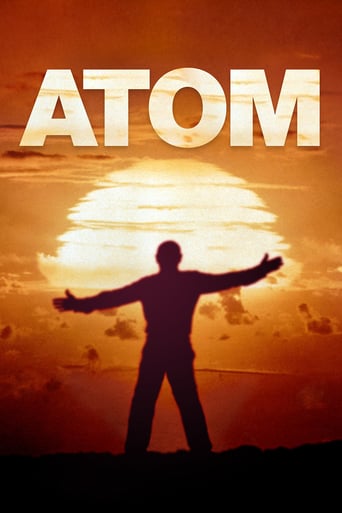
Prime Video
Atom
The story of the discovery that everything is made from atoms, one of the greatest scientific breakthroughs in history, and the brilliant minds behind it.
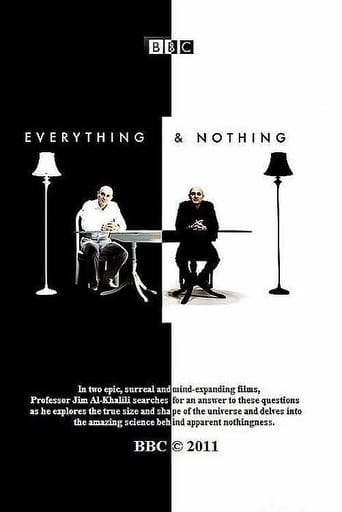
Everything and Nothing
Two-part documentary which deals with two of the deepest questions there are - what is everything, and what is nothing? Professor Jim Al-Khalili searches for an answer to these questions as he explores the true size and shape of the universe and delves into the amazing science behind apparent nothingness.
Related

Netflix
Gilmore Girls: A Year in the Life
Set nearly a decade after the finale of the original series, this revival follows Lorelai, Rory and Emily Gilmore through four seasons of change.

Prime Video
The Lord of the Rings: The Rings of Power
Beginning in a time of relative peace, we follow an ensemble cast of characters as they confront the re-emergence of evil to Middle-earth. From the darkest depths of the Misty Mountains, to the majestic forests of Lindon, to the breathtaking island kingdom of Númenor, to the furthest reaches of the map, these kingdoms and characters will carve out legacies that live on long after they are gone.

Netflix
Love
Rebellious Mickey and good-natured Gus navigate the thrills and agonies of modern relationships.
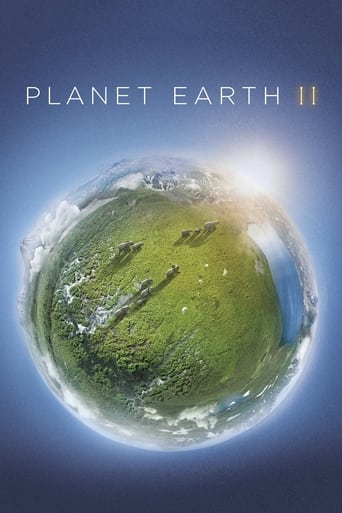
Max
Planet Earth II
David Attenborough presents a documentary series exploring how animals meet the challenges of surviving in the most iconic habitats on earth.
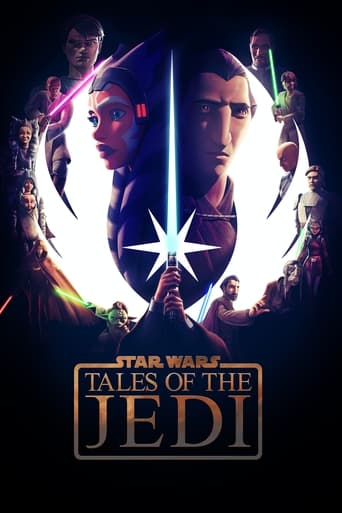
Disney+
Star Wars: Tales of the Jedi
Journey into the lives of two distinctly different Jedi from the prequel era – Ahsoka Tano and Count Dooku. Each will be put to the test as they make choices that will define their destinies.
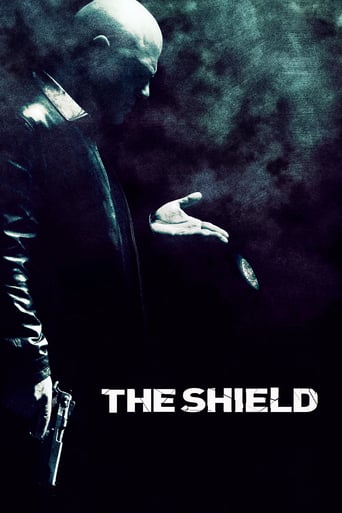
HULU
The Shield
The story of an inner-city Los Angeles police precinct where some of the cops aren't above breaking the rules or working against their associates to both keep the streets safe and their self-interests intact.

Max
Last Week Tonight with John Oliver
A half-hour satirical look at the week in news, politics and current events.

Disney+
Secret Invasion
Nick Fury and Talos discover a faction of shapeshifting Skrulls who have been infiltrating Earth for years.

HULU
Quantico
A diverse group of recruits has arrived at the FBI Quantico Base for training. They are the best, the brightest and the most vetted, so it seems impossible that one of them is suspected of masterminding the biggest attack on New York City since 9/11.

Nikita
Nikita will stop at nothing to expose and destroy Division, the secret U.S. agency who trained her as a spy and assassin.
Top Streaming TV Show
#1

Grey's Anatomy
March. 27,2005
7.6
#2

A Teacher
November. 10,2020
6.9
#3

The Mandalorian
November. 12,2019
8.7
#4

Game of Thrones
April. 17,2011
9.2
#5

Station 19
March. 22,2018
7
#6
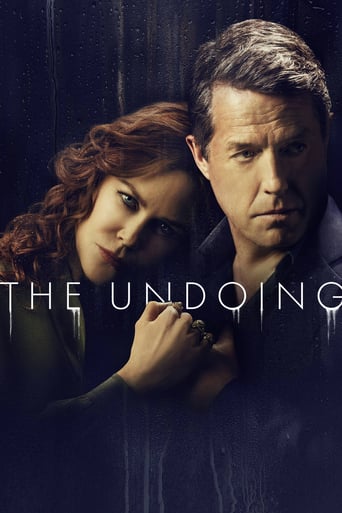
The Undoing
October. 25,2020
7.4
#7
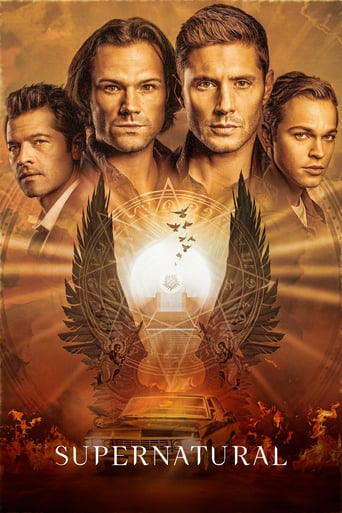
Supernatural
September. 13,2005
8.4
#8

The Last Dance
April. 19,2020
9.1
#9

Euphoria
June. 16,2019
8.3
#10

Fear the Walking Dead
August. 23,2015
6.8

